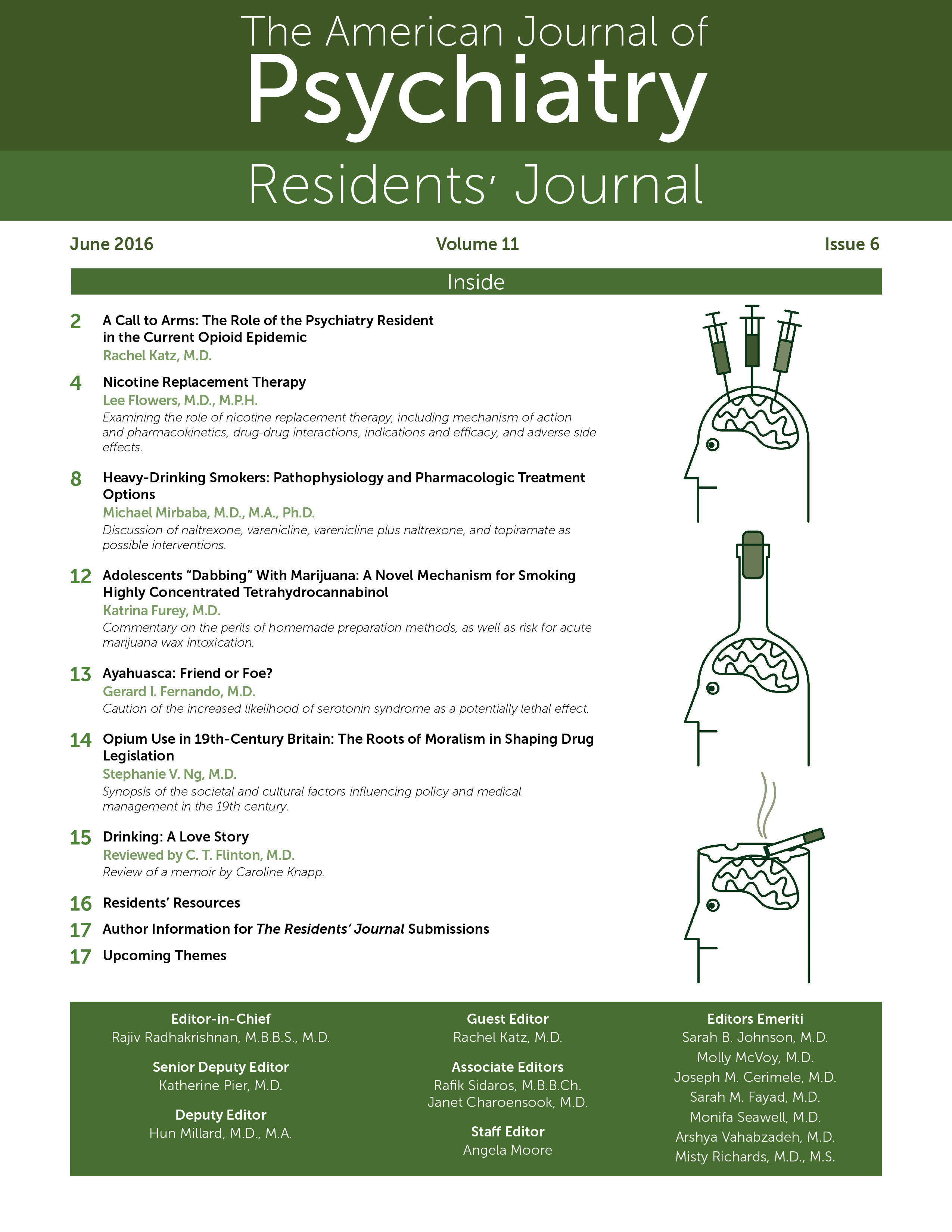Drinking: A Love Story

Alcohol-related disorders constitute a behavioral health epidemic. According to the 2014 National Survey on Drug Use and Health, 6.8% of Americans over the age of 18 suffer from alcohol use disorders (1). Unfortunately, only about 8.9% of these Americans will receive specialized treatment (1).
Patients in remission from alcohol use disorders carry high relapse risk and may pose significant challenges for even the most seasoned provider. Understanding the patient experience can be vital to developing rapport and formulating an appropriate treatment plan for such complex patients. With this goal, Caroline Knapp’s memoir, Drinking: A Love Story, may have no equal.
In Knapp’s words, “an addict is someone who seeks physical solutions to emotional or spiritual problems” (p. 58). She describes a powerlessness experienced by the active alcoholic, a kind of passive self-loathing. Personifying alcohol, Knapp underscores its ability to act as a companion and, in turn, temporarily reduce the experience of social isolation in intoxicated moments. This kind of validation is—by definition—transient; dependence on this external approval fuels a cycle in which the addict will “surrender [the] sense of self” (p. 91). Knapp describes that as her alcohol dependence progressed, denial and the construction of alternative identities offered comforting defenses: “we hide from others (and often from ourselves) the truth about our real selves” (p. 16). She laments that many alcohol abusers employ this denial to avoid substance abuse treatment for years.
Knapp bravely narrates the troubling progression of alcoholism from her teen years to her eventual sobriety in her mid-thirties. In chapters with titles such as “Love,” “Sex,” “Addiction,” and “Denial,” she provides a compelling depiction of her relationship with alcohol and how it invaded every aspect of her life. She imparts decades of wisdom from her observations of her fellow Alcoholics Anonymous members. She also draws upon experiences in therapy and with her father, a Harvard-trained psychoanalyst, to examine the dynamics underlying her romance with alcohol; she suggests understanding of alcohol both as a mechanism to cope with intolerable affect and a transitional object (2) in a way that resonates with laypeople and physicians alike.
After a series of tragic events, Knapp credits her own desperation as the driving force for recovery. Nevertheless, she admits that even after years of sobriety, at the site of a wine glass, “my pulse still quickens and I find myself watching it wistfully, the way you might look at a photograph of someone you loved deeply and painfully and then lost,” (p. 105).
Drinking: A Love Story artfully explains the power of a patient’s attraction and struggle through a harmful relationship with alcohol. It provides valuable insight into the denial and resistance a provider may encounter when treating alcohol use disorders. Knapp’s well-crafted prose presents an enjoyable read as an excellent, easy-to-access guide to the psychological and emotional experience of alcoholism for any behavioral health provider.
1.
2. : Three perspectives on addiction. J Am Psychoanal Assoc 1999; 47:791–815 Crossref, Google Scholar



